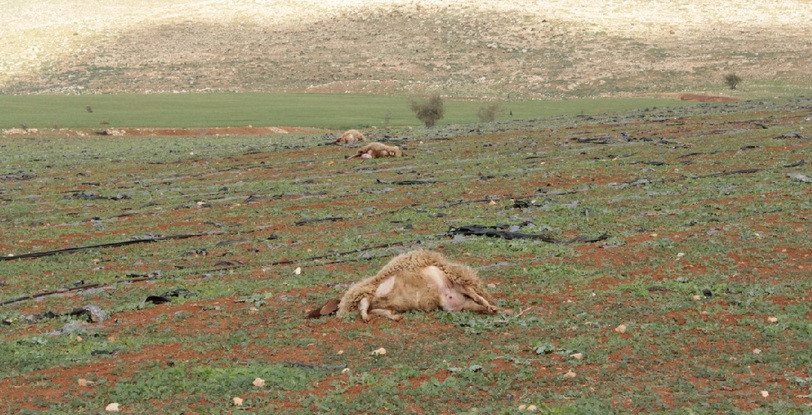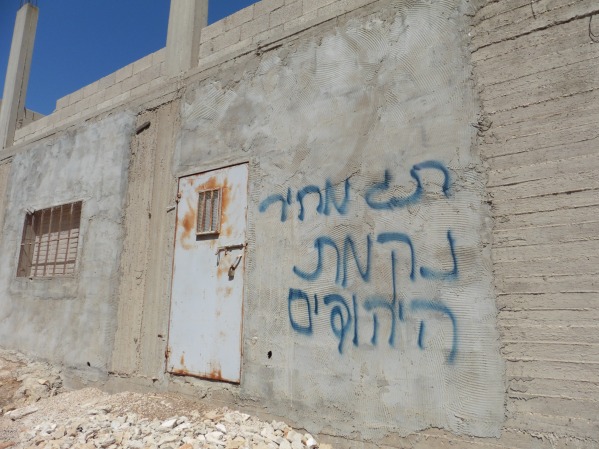Tag: Aqraba
-
Zionist settlers poison 13 sheep near Aqraba
6th January 2015 | International Solidarity Movement, Nablus team | Aqraba, Occupied Palestine Yesterday, ISM volunteers traveled to the area of Lifjim in East Aqraba, where shepherd Mohammed Ibrahim Abu Hamed grazes his sheep. Thirteen sheep lay dead there, foaming at the nose and mouth, one with green vomit visible – a clear case of…
-
Mosque burnt in apparent price tag attack
15th October 2014 | International Solidarity Movement, Nablus team | Aqraba, Occupied Palestine In the early hours of Tuesday morning, a group of Zionist settlers from the illegal settlements close to Aqraba near Nablus, set fire to a mosque in the outskirts of the village. The investigation so far shows that the building was set on fire at approximately…
-
Price tag attack in Aqraba, farmer’s house attacked
2nd July 2014 | International Solidarity Movement, Nablus team | Aqraba, Occupied Palestine Fadi Bassem is a farmer who lives in the village of Aqraba, 20 km south of Nablus, in the northern half of the West Bank. He lives with his extended family, 15 people in a single house. At 03:30 in the early hours of…



